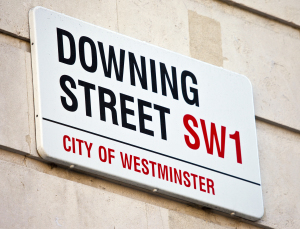The future is bright
We believe that the future is bright, that health will improve and that progressive pharma will be successful. Led by emerging science, amplified by technology and powered by engaged patients.
The scale and impact of progress, will be at the discretion of a new breed of physician, the millennial HCP (mHCP). Digitally native, their number increases year-on-year.
Of course, they exhibit many of the traits of their predecessors; knowledge, empathy, ambition. We’re comfortable with the healthcare professional in them. But what about this other side – the millennial? What does it mean when your homework group included Google and Wikipedia? When you spent 14 months of your medical education online? And when you haven’t written by hand for more than a month?
Millennials are visual. They choose SnapChat, YouTube and Instagram. 72% of them use emojis to communicate their emotions – no language has ever grown more quickly.

Millennials embrace progress. 95% make positive associations with the word ‘change’. Their digital tools of choice are in a constant state of beta, as they look to optimise their digital being.
Millennials demand more. They believe big business should take as much responsibility as the government. And, as illustrated by the UK Government and Junior Doctor dispute, they believe in collective power.
It would be wrong to define this generation by their birth certificates, and to suggest that this population only includes those born after 1980. Instead, it is a generation that was forged in the last two decades as its members immersed themselves in a new world. Their habits and personalities have evolved with the technology around them. Put simply, they are digital.
In this world, insight, creativity and design are more important than ever. CREATIVE agencies have a critical role to play, aiding and supporting mHCPs to leverage the science and technology at their disposal.
Scientific knowledge has been, and always will be, the critical capability of physicians. The shift, is in their expertise and confidence with technology. And our opportunity is to recognise these new skills, supporting mHCPs in improving outcomes.

Much of the industry boasts an exciting pipeline of products. As we look to build these brands and partner with healthcare professionals, let’s not forget the millennial within them 😉
To find out more about the impact of the millennial generation on healthcare, sign up for the new white paper, podcast, and YouTube series from Havas Lynx at www.m-hcp.com
References
The Henry J. Kaiser Family Foundation. State Health Facts 2015. http://kaiserf.am/1VfEncN (Accessed May 2016)
Ofcom. Media Use and Attitudes Report 2015 http://bit.ly/1E3fFyO (Accessed May 2016)
Docmail. The death of handwriting. 2012 http://bit.ly/1srFRoG (Accessed May 2016)
Bangor University & Talk Talk Mobile. Linguistics Research. 2015. http://bit.ly/1HseRrW (Accessed May 2016)
Pepsi Optimism Project. 2008. http://bit.ly/1R6meY1 (Accessed May 2016)






